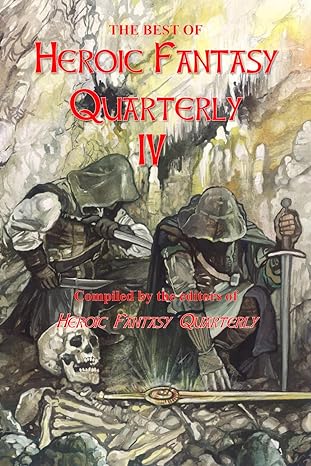Booyah! Quatro-Decadal Review, an Introduction to the World as it was in November 1999
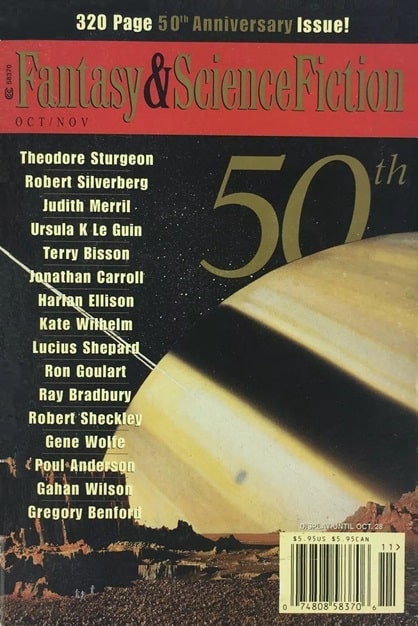 |
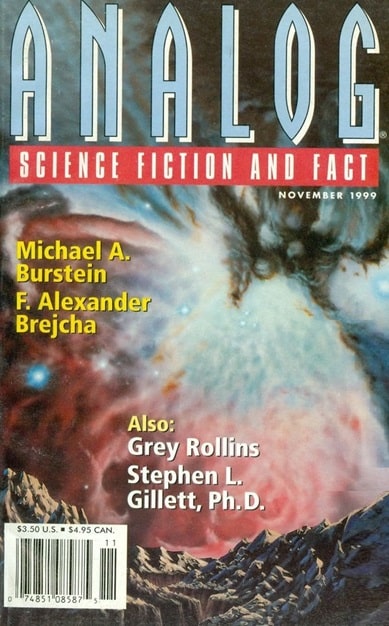 |
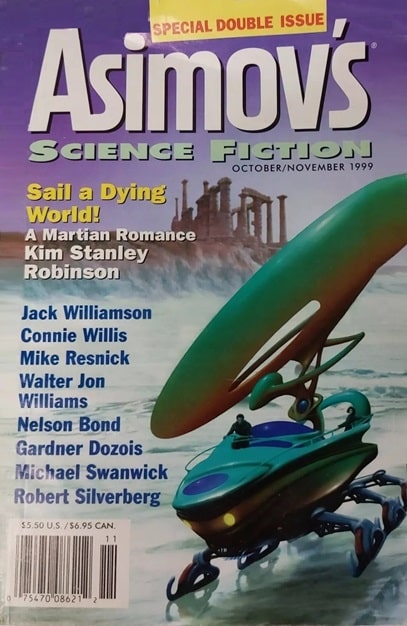 |
Some of the print SF magazines of November 1999: The 50th Anniversary issue of
The Magazine of Fantasy & Science Fiction, Analog, and the October-November double
issue of Asimov’s Science Fiction. Covers by Chesley Bonestell, Kim Poor, and Jim Burns
With the ‘69, ‘79 and ‘89 magazines behind me I prepare to delve into 1999. On the one hand, my memories of 30-year-old-me (30 YOM), while closer in time than 20YOM, are perhaps a bit hazier because unlike 20 YOM, 30 YOM could legally buy booze and did!
Still, I had moved from a naïve 20 to a battle-tested 30. The answers? I still had them, but getting there was going to be a problem. Between ‘89 and ‘99 I had finished college, been the poorest I have ever been in my life, got a real girlfriend, got my first professional job, been in a car crash, and transitioned from taking taekwondo to teaching it. It seems to me that as the decades have progressed they have gotten less and less distinct. Are the 2020s that much different than the 2010s? The 2010s that much different than the 2000s? There are differences, but not like the differences between the 2000s and the 90s, and the 90s and the 80s, and on down the line. In the mid-90s I worked with a guy who had put his professional wardrobe together in the late 70s and he stuck out like a sore thumb. I put my wardrobe together in the late 90s and for the most part, I can wear it now and nobody looks twice.
I had poked a bit at writing in ’90 and ’92, but in ’97 I decided to give writing a go and by 1999 I was probably finished with my first book and researching for my second. I was still five years away from going to my first sci-fi convention. Still, I had a good grip on the various aspects of fandom — some of this was just filtered in from the waters I swam in — I knew people in fandom, or people who kept up with it online — let me say that right 90s way: “on the web”.
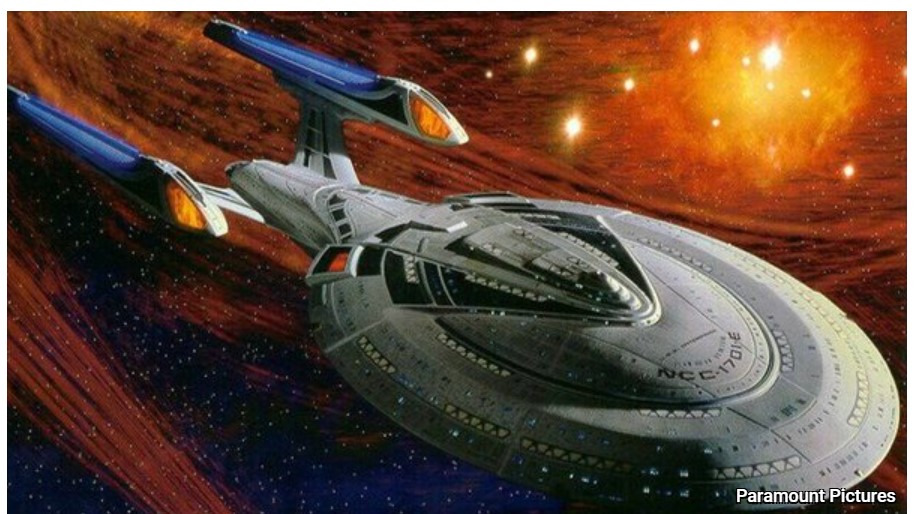 I’ve always had a soft spot for the Enterprise-E
I’ve always had a soft spot for the Enterprise-E
The decade brought Star Trek The Next Generation to an end, and ran through DS9, and was deep into the run of Voyager. We started the 90s with the last TOS movie, The Undiscovered Country and jumped into TNG movies. The decade was also kind to franchises not Star Trek related—Babylon 5, Sea Quest, and a revival of The Outer Limits.
Fantasy TV also had its charm, with Highlander, Buffy the Vampire Slayer, and Xena: Warrior Princess. Re-watching the X-files, my wife and I noted that honestly, outside of the cell phones and the boxy computers, the only thing that ages the show is Skully’s hairstyles (and then, only the first few seasons, when it still has an 80s vibe).
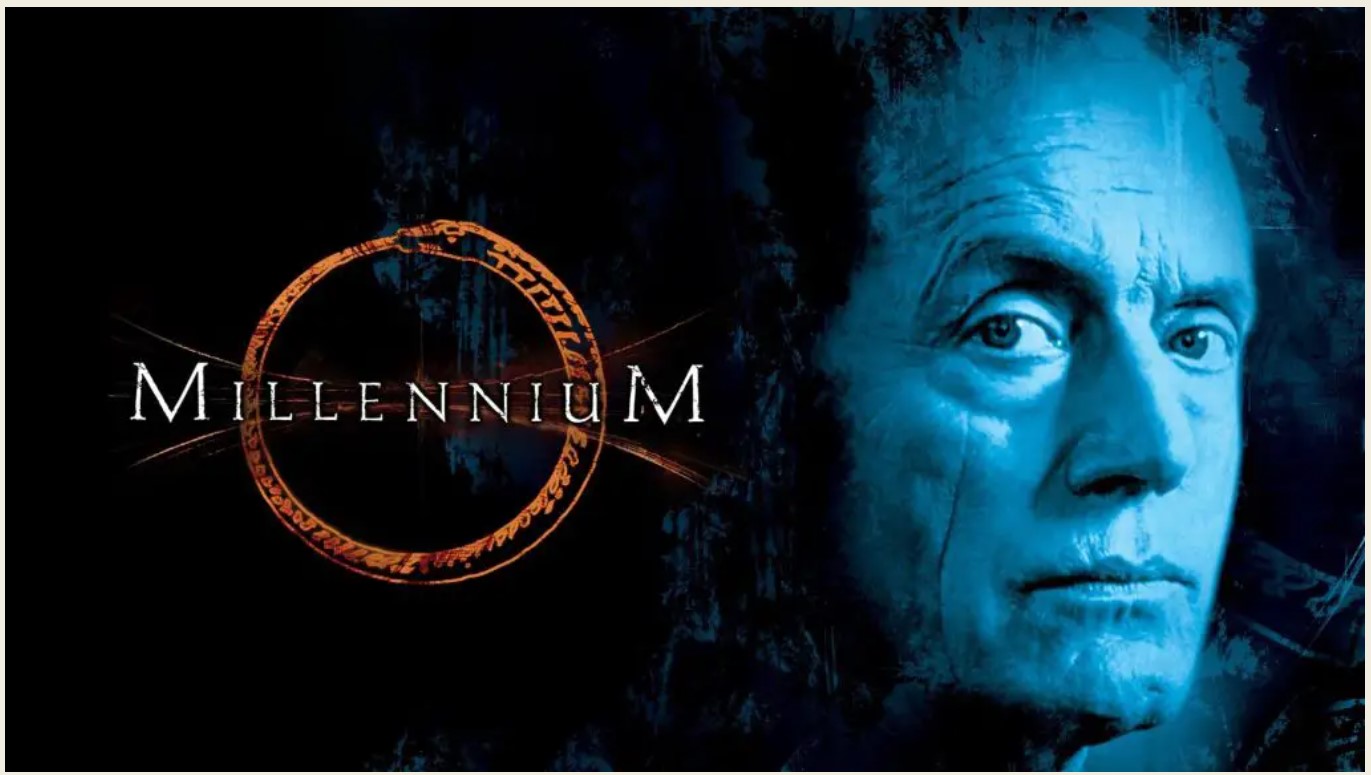 “I don’t think it’s something in the water”
“I don’t think it’s something in the water”
The 80s was the decade where actor Lance Henrickson was in everything worth watching, and the 90s was the decade that Lance Henrickson starred in Millennium, which is still a high-water mark for TV. About every four years I re-watch the series and am always amazed at how good it is, and wonder how something that… harsh? was ever put on T.V.
 Honestly, I did not see this coming
Honestly, I did not see this coming
The list of movies of the 90s is far too long to list here, Star Trek has already been mentioned, but this decade brought us great science fiction movies with Jurassic Park, The Matrix, Dark City, and Contact. I think a great movie that screams 90s is Army of Twelve Monkeys.
On the fantasy movie side of things, the decade gave us The Crow, The Mummy, and it seemed you couldn’t escape Tim Burton with Edward Scissorhands and the classic Nightmare Before Christmas, among his many others.
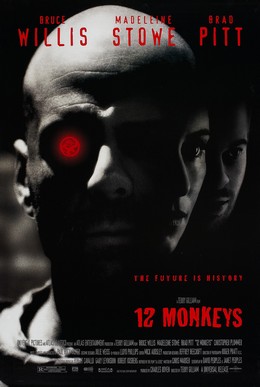 “They put it in your teeth.”
“They put it in your teeth.”
The 90s started pre-internet (for me at least, there were people in the know re: the world of Bulletin Board Systems) and if you wanted to know something about a subject, you had to either know someone who had that knowledge, or find a reference of some kind — Planet Comics was that spot for me. It was where all that nerdy gaming and fantasy and sci-fi all came together.
Early in the decade they also had a large paperback book selection, when I picked up Neuromancer and Burning Chrome. Computers themselves went from being stand-alone things some people had in their house, to the internet 1.0. Tabletop games grew in number and popularity, and computer games grew in numbers, popularity, and complexity.
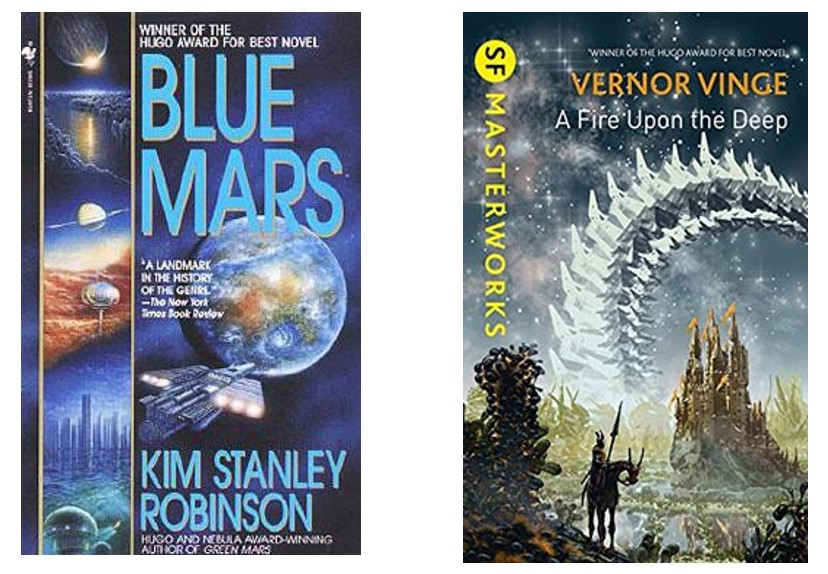 Two of the decade’s classics
Two of the decade’s classics
Of course, all these TV shows and movies, each of them took a small bite out of the body of SF/F readership. Yes, one can make an argument that they also brought in fans, but I would suspect that the overall change was a loss.
Still, on the novel side of things it was a banner decade. Dan Simmons brought us Hyperion and Vener Vinge struck meme gold with A Fire Upon the Deep. Neil Stephenson launched big with Snow Crash, Ian Banks and his Culture novels, and of course, Harry Potter”. To be honest, I didn’t read any of those books back when they actually came out, except for Harry Potter. I was still getting through some of the standouts from the 80s and followed David Eddings and C.J. Cherreyh into the 90s.
But by the end of the decade, I was working on my own stuff and spending weekends hiking and that took a big chunk out of any reading time I had. Just like the 80s, you know what got short shrift? You know what’s missing from the list of great SF/F stuff? Magazines! While I was more aware of them than I had been in the 80s, I still didn’t read them.
And honestly, it may be that I didn’t even know where to look for them — if I had gone into Waldenbooks or B Dalton to look for a ‘science fiction magazine’ I would have probably followed my eyes to all the magazines that were about sci-fi movies and UFOs — NOT in the literary section where most of the SF/F magazines were actually placed.
Ironically, later, when I was interested in more literary fiction (outgrowths of taking that writing class), I would look right past the science-fiction magazines that were in that section. Since we live in the future, I am able to get on Ebay and re-create the past! The magazines have been ordered and have arrived and soon we’ll be past these formalities and into the actual reviews.
Previous entries the Quatro-Decadal Reviews include:
November 1969
Amazing Stories Galaxy Science Fiction, The Magazine of Fantasy & Science Fiction Worlds of If Analog Science Fiction/Science Fact Venture Science Fiction A Decadal Review of Science Fiction from November 1969: Wrap-up
November 1979
Quatro-Decadal Review, November 1979: A Brief Look Back The Magazine of Fantasy & Science Fiction Galileo Magazine of Science & Fiction Analog Science Fiction Science Fact Isaac Asimov’s Science Fiction Amazing Stories Omni A Decadal Review of Science Fiction from 1979: Wrap-up
November 1989
Jump Back! Quatro-Decadal Review, Looking Ahead to November, 1989 Amazing Stories Analog Asimov’s Magazine of Fantasy and Science Fiction Weird Tales
Adrian Simmons is an editor for Heroic Fantasy Quarterly, check out their Best-of Volume 4 Anthology, or support them on Patreon!
